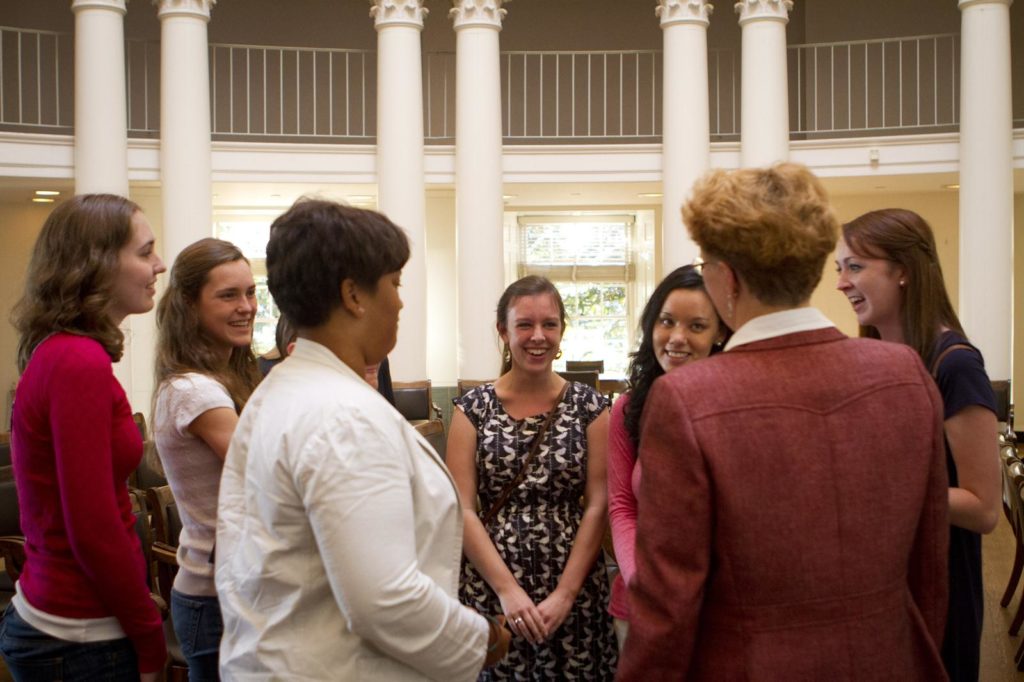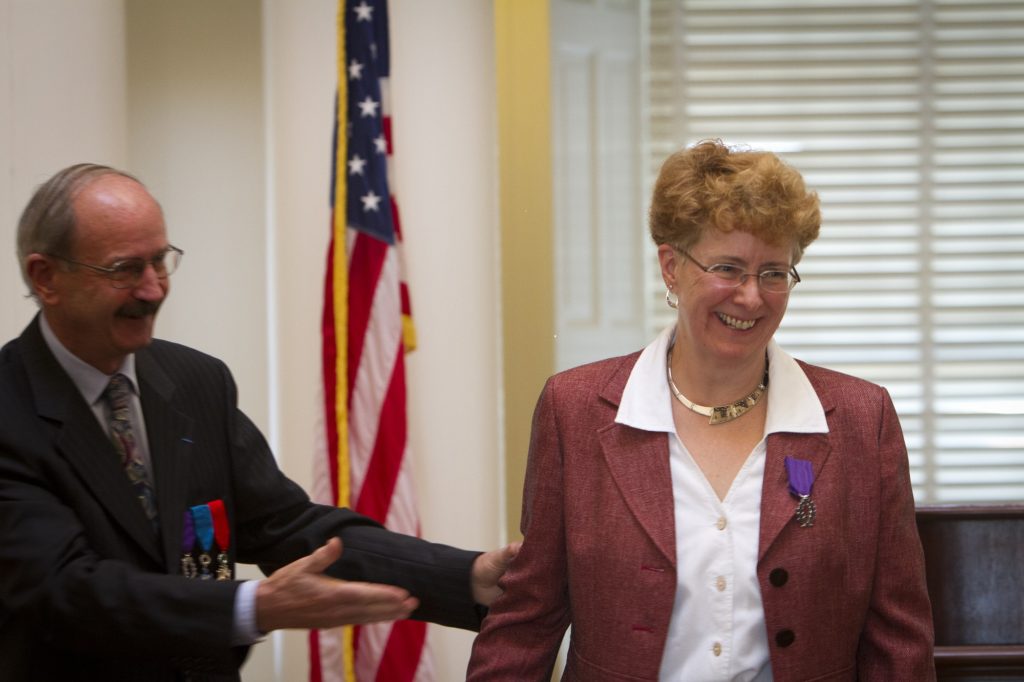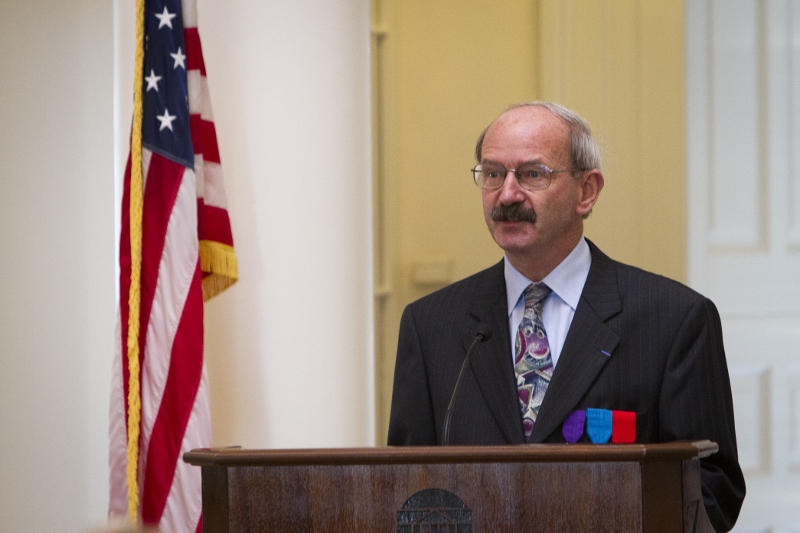Marva receives the insignia of chevalier des Palmes académiques in honor of her work in support of French language and culture, especially her work on Hugo. Gérard Pouchain, agrégé de l’université, chevalier de la Légion d’Honneur, du Mérite national et des Palmes académiques, traveled from Paris to present Marva with the insignia in the presence of Teresa Sullivan, President of the University of Virginia, and Jean-Claude Duthion, Attaché de coopération éducative of the French Embassy in the United States in the University of Virginia Rotunda Dome Room on Friday, October 19, 2012. Read the UVa news story.


Here are excerpts from Gérard Pouchain’s remarks that day (first, the English translation, followed by his original French):
I would like to express my pleasure at returning to the Rotunda, where in April 2005 I came to talk about Victor Hugo and Juliette Drouet.
And this pleasure is even greater since I am here not as a speaker, but as the representative of the Ministry of National Education charged with paying tribute to Marva Barnett’s great merits and all the work on behalf of French language and culture which has earned her this official recognition.

Victor Hugo obviously brought Marva and me together. In spite of her modesty/Putting her modesty aside, I am eager to say publicly how widely she is recognized in France as one of the most eminent Hugo specialists. Marva’s publications are read with the greatest interest by the Hugo scholars and the members of the Society of the Friends of Victor Hugo who have heard her speak in Paris, most notably at the Sorbonne Nouvelle.
It is only proper that today, on both sides of the Atlantic, voices such as Marva’s transmit ideals dear to Victor Hugo, who never stopped working for peace, for respect for life, for women’s and children’s rights, for the poor, and for justice.
This week, UNESCO published a report on children’s education throughout the world. School for everyone— something Victor Hugo wished for—has been battered by the current financial crisis. Forty-seven percent of children may never have a chance to go to school. Which is to say that our author, deeply engaged in the battles of his time, ardent defender of “free, required instruction,” is still relevant. Thank you, Marva, for taking part in this work.
Je ne cache pas mon plaisir de retrouver la Rotunda où je suis venu en avril 2005 évoquer Victor Hugo et Juliette Drouet.
Et ce plaisir est d’autant plus grand que je ne viens pas en tant que conférencier, mais comme représentant du ministre de l’Éducation nationale pour saluer les grands mérites de Marva Barnett et tout son travail en faveur de la langue et de la culture françaises, qui lui valent cette reconnaissance officielle.
C’est évidemment Victor Hugo qui nous a rapprochés. N’en déplaise à la modestie de Marva, je tiens à dire publiquement combien elle est reconnue en France comme l’un de plus éminents spécialistes de l’écrivain. Les publications de Marva sont lues avec le plus grand intérêt par les hugoliens et les membres de la Société des Amis de Victor Hugo qui l’ont écoutée à Paris, notamment à la Sorbonne nouvelle.
Il est bon qu’aujourd’hui, des deux côtés de l’Atlantique, des voix, comme celle de Marva, se fassent les passeurs des idéaux si chers à Victor Hugo qui n’a cessé d’œuvrer en faveur de la paix, du respect de la vie, des droits de la femme et de l’enfant, des misérables, de la justice.
Cette semaine, l’Unesco a publié un rapport sur la scolarisation des enfants dans le monde. L’école pour tous, comme le souhaitait Victor Hugo, est mise à mal par la crise. 47% des enfants risquent de ne jamais aller à l’école. C’est dire si l’écrivain, profondément engagé dans les luttes de son temps, ardent défenseur, je cite, « de l’instruction gratuite et obligatoire », est toujours d’actualité. Merci, chère Marva, d’y participer.
